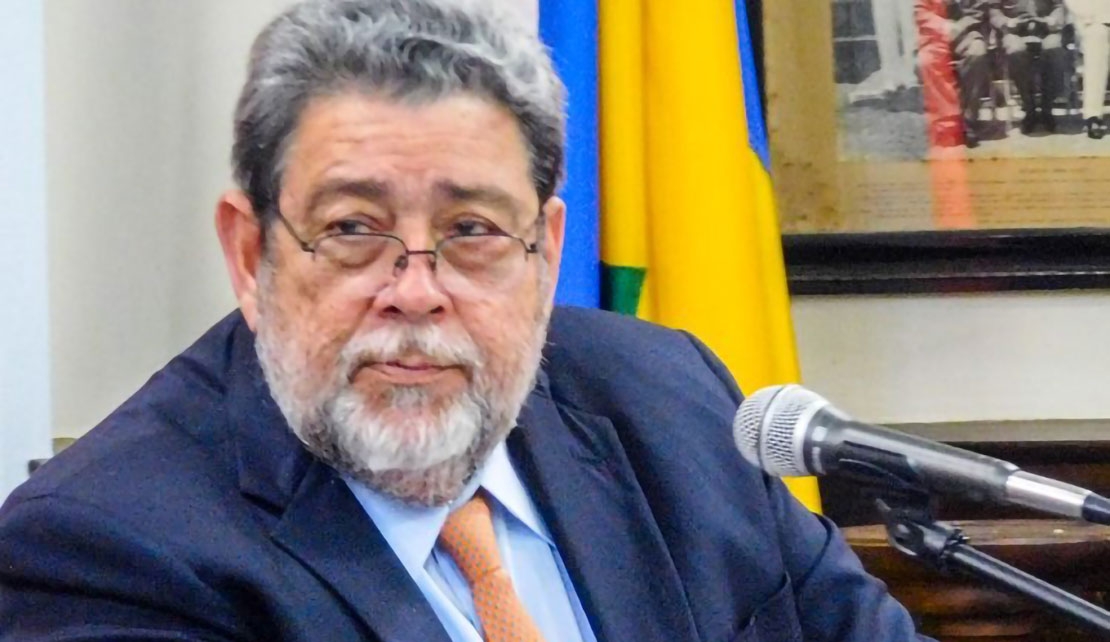SVG | COVAX penalizes St.Vincent for sending vaccines to Trinidad

MONTEGO BAY, December 3, 2021 - While Jamaica was forced to dump without penalty, 240-thousand doses of vaccines received from the COVAX facility in October and November that were about to expire, St. Vincent and the Grenadines chose to give some of its “at risk of expiring” vaccines to Trinidad and Tobago and were penalized for it.

However, the Gavi COVAX Facility, ordered St Vincent and the Grenadines to pay US$70,000 for COVID-19 vaccines that it donated to Trinidad and Tobago in May.
Gonsalves told NBC Radio last Wednesday that COVAX said his government should have returned the vaccines instead of giving them away.
The vaccines were acquired through Covax through the Pan-American Health Organisation’s Revolving Fund. Covax was to provide vaccines for at least 20 percent of the population of each participating country during 2021.
“COVAX said to us what we gave to Trinidad, we should not have done so, we should have given them back and they would give whoever they want. I think they had somewhere else they wanted to give them – not in the Caribbean. We gave them to Trinidad so we will have to pay for those. It’s about US$70,000,” he disclosed.
Countries accessing Covax were either self-financing or non-self-financing. Self-financing countries had two options to get vaccines, a committed purchase where they would pay a lower upfront payment of US$1.60 per dose, or 15 percent of the total cost per dose, or an optional purchase arrangement where they would make a down payment of US$3.10 per dose and a risk-sharing guarantee of US$0.40 per dose.
SVG was one of the lower-income countries in the Americas which received vaccines from Covax free of charge, as well as Dominica, Grenada, Guyana, Haiti, and St Lucia, while TT paid for the vaccines it acquired through the facility, as did Antigua and Barbuda, The Bahamas, Barbados, Belize, Dominica, the Dominican Republic, Grenada, Guyana, Haiti, Jamaica, St Kitts and Nevis St Lucia, St Vincent, and Suriname.
Gonsalves said that when his Trinidad counterpart, Dr. Keith Rowley, heard about the development, the government offered to pay for the vaccines.
“I said, ‘No. No. No. No. No. We gave you.’ So we have to organize — I believe the payment has been made already, the US$70,000 to COVAX because if we are getting now through the US, I don’t want to have any indebtedness to COVAX,” Gonsalves said.
“We are a people of solidarity; that’s how we function. Social solidarity, regionally, globally and nationally. Love thy neighbor as you love yourself. Trinidad has been very generous to us in many, many ways. I can’t give you that and ask you to pay for it. Absolutely not. That ain’t how we stop. We nah stop so,” the Prime Minister insisted.
Back in May, Trinidad’s government had imposed a state of emergency due to a rise in COVID-19 cases. Rowley has said he came to the realization that he was seeing a “population that is scared”.

“That is bureaucracy gone mad. The option of the government of SVG was to have those vaccines expire and be dumped. We were in a position to make use of them, and it was against that background that the government of St Vincent took the decision that they prefer to have them utilised them in TT than to have them expire and be dumped.”
“The bureaucrats at PAHO are saying, 'It was our supply to you, and if you let anybody else to it, you’re going to have to pay for it.'
"Of course, they are blind to the fact that the vaccines in a pandemic were made to be utilised by people who wanted to use them. So I’m not surprised. Bureaucrats do things like that, Rowley said.”
Jamaica received a total of 1,005,240 vaccines from Covax, split between AstraZeneca and Pfizer beginning on March 21. On November 1, it dumped 185,000 AstraZeneca vaccines that expired on October 31. On November 1, the government had to dump 55,000 AstraZeneca vaccines donated by the UK because of what was said to be the low take up of the vaccine.
The Covax facility was formed by the GAVI Global Vaccine Alliance as part of the Access to covid19 Tools (ACT) Accelerator, a global collaboration of global health organisations in an unprecedented effort to accelerate the development, production, and equitable access to new covid19 technologies.
-30-
